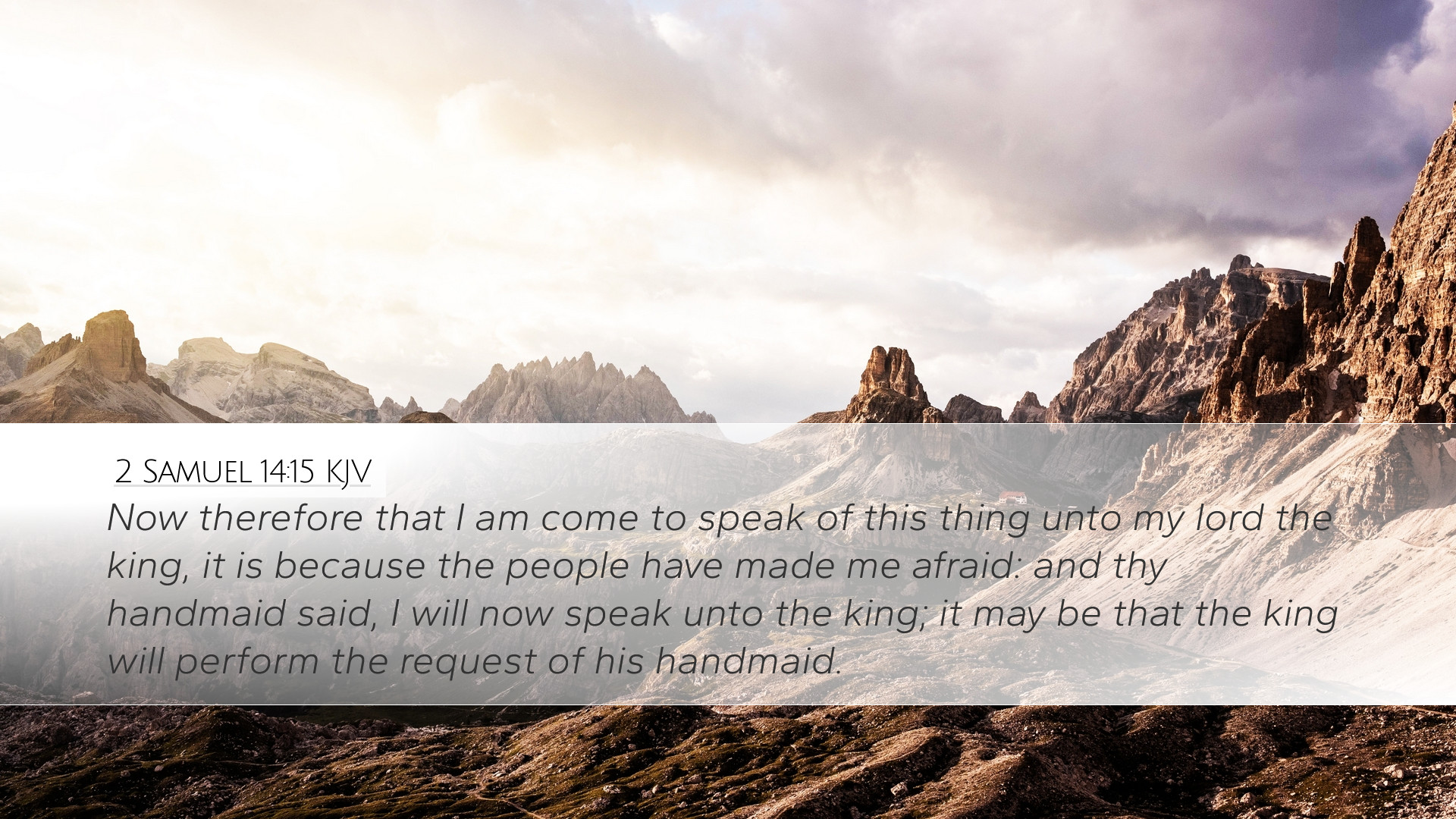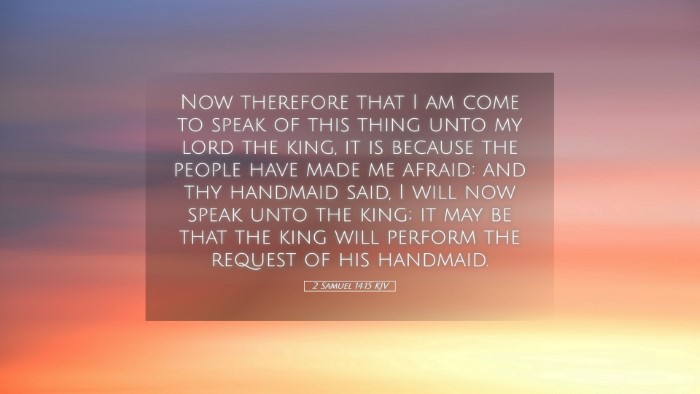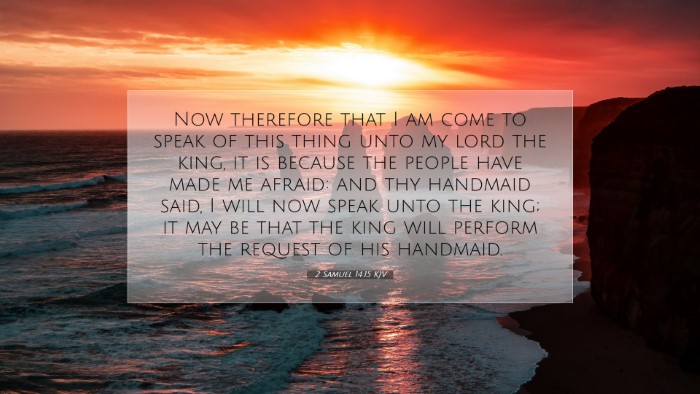Bible Commentary on 2 Samuel 14:15
Verse: "Now therefore that I am come to speak of this thing unto my lord the king, it is because the people have made me afraid: and thy handmaid said, I will now speak unto the king; it may be that the king will perform the request of his handmaid."
Introduction
This verse presents a significant turning point in the narrative of 2 Samuel, revealing the intricate dynamics of power, manipulation, and the human condition. The context of this passage stems from Absalom's rebellion and the heaviness that weighed upon King David’s court. In gleaning insights from notable public domain Bible commentaries, we delve into the socio-political implications of this verse and its theological underpinnings.
Contextual Background
At this point in the biblical narrative, Joab orchestrates a plan to bring Absalom back from exile following his murder of Amnon. The woman of Tekoa is summoned to play a pivotal role in this scheme. Understanding the broader narrative is crucial for interpreting 2 Samuel 14:15.
-
Historical Context:
The events surrounding 2 Samuel are rife with familial strife and political tension. King David, though beloved, faced personal failures leading to national upheaval. The reconciliation of estranged family members and issues of justice become predominant themes.
-
Character Study:
The woman of Tekoa represents a voice of wisdom and an agent of change. Her plea to David mirrors various forms of advocacy present throughout the Scriptures as well as the nuances of leadership.
Verse Analysis
In this verse, the woman's words carry deep meaning and indicate her role of intercession. Specifically, her claim that "the people have made me afraid" highlights a communal concern that transcends her personal plight, reflecting the collective fears stemming from discord within the realm.
-
Communal Approaches:
Albert Barnes emphasizes that the fear experienced by the woman signifies the eroding stability of David's leadership. It underscores the role of public sentiment in governance and the implications of volatile situations.
-
Spiritual Implications:
Matthew Henry points out the manner in which the woman seeks the king’s favor. She demonstrates humility and wisdom, suggesting that an appeal to authority, banked on genuine need, may yield favorable results.
Theological Reflections
The thrust of 2 Samuel 14:15 is not merely political; it echoes deeper theological realities regarding human relationships with God and authority. The awareness of fear and vulnerability opens up avenues for divine intervention and intercession.
-
Intercession:
Adam Clarke elaborates on the woman's role as an intermediary, akin to the prophetic traditions within Israel. This intercessory dynamic points to God’s overarching sovereignty while acknowledging human agency.
-
God’s Justice:
The notion of justice permeates this verse. The woman’s assertion that the king should "perform the request of his handmaid" implies a call to justice that is made not only for the individual but for the community at large, reflecting God’s desire for righteousness.
Practical Applications
For pastors, theologians, and scholars, 2 Samuel 14:15 offers numerous contemporary applications:
-
Leadership Lessons:
The weight of leadership is illuminated in this text. Leaders must recognize and respond to communal fears and aspirations, exemplified in the woman's longing for justice and peace.
-
Empathy and Advocacy:
Just as the woman of Tekoa advocates for her cause, the modern church is called to not only empathize with societal fears but also to act. This may involve ministries that seek reconciliation, justice, and advocacy for the marginalized.
-
Importance of Communication:
The exchange between the woman and David highlights the significance of honest dialogue in navigating conflicts. Effective communication can bridge gaps and restore relationships.
Conclusion
In summary, 2 Samuel 14:15 encapsulates the enduring human struggles for justice, the complexities of leadership, and God's working through flawed human agents. The insights drawn from Matthew Henry, Albert Barnes, and Adam Clarke enrich our understanding of this scripture, providing layers of meaning that resonate with both historical context and contemporary relevance. Pastors, students, and scholars alike are encouraged to reflect on this passage, considering its implications for modern leadership and faith-filled advocacy.


